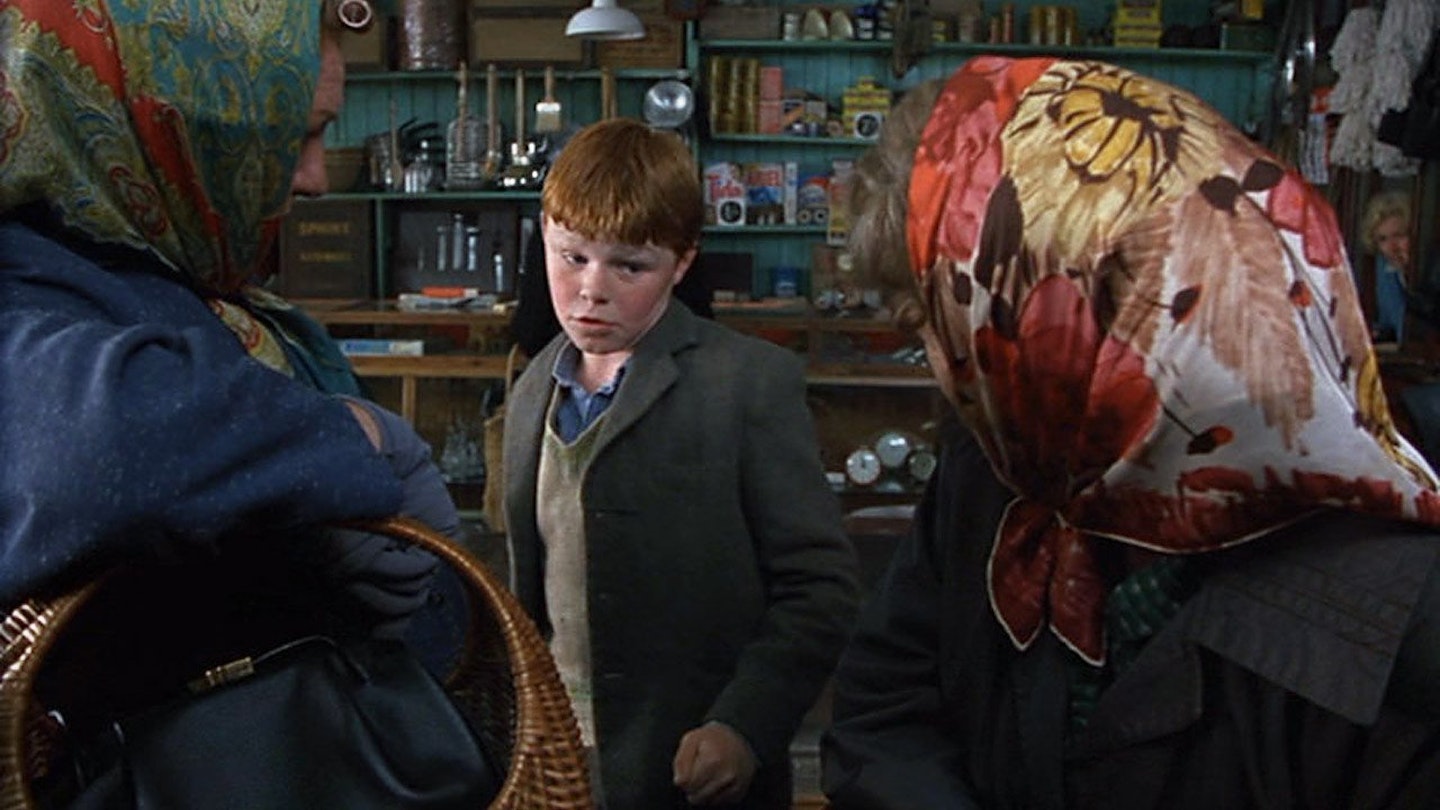The cliché that psychological books are hard to commit to celluloid is as old (and as unhelpful in assessing a film) as the line that Americans can't do Irish accents. But in the case of author Patrick McCabe's The Butcher Boy; a shocking story set in 1960s Ireland, about a damaged youth whose ever-expanding paranoia and violent anger leads to a bloody denouement, as told through the voice of the chief protagonist, must rank as one of the most difficult.
What is impressive about Neil Jordan's adaptation (co-written by the director and McCabe, which has clearly helped keep a hold on it) is that he has refrained from filleting the book too severely, while his linear storytelling remains true to the line and style of the original narrative. More remarkable is his discovery of young Eamonn Owens, a County Cavan schoolboy, who plays the disturbed Francie Brady to schoolmate Alan Boyle's Joe.
Elsewhere Fiona Shaw, a much-lauded stalwart of the British stage, delivers a sublime rendition of the haughty, self-aggrandising social arriviste Mrs. Nugent, and Stephen Rea is at his least irritating as an effluence- spouting drunkard father to Francie. And even singer Sinead O'Connor, making a fleeting appearance as an apparition of Mary, is reasonable.
So it should be drinks all round at the Jordans except that a big problem lurks out there in the cinemas: in the context of We're No Angels, The Crying Game, Interview With The Vampire and Michael Collins, this must rate as Jordan's most uncommercial film in over a decade. This shouldn't be its downfall, but is.
